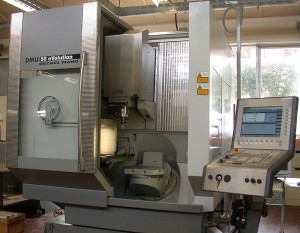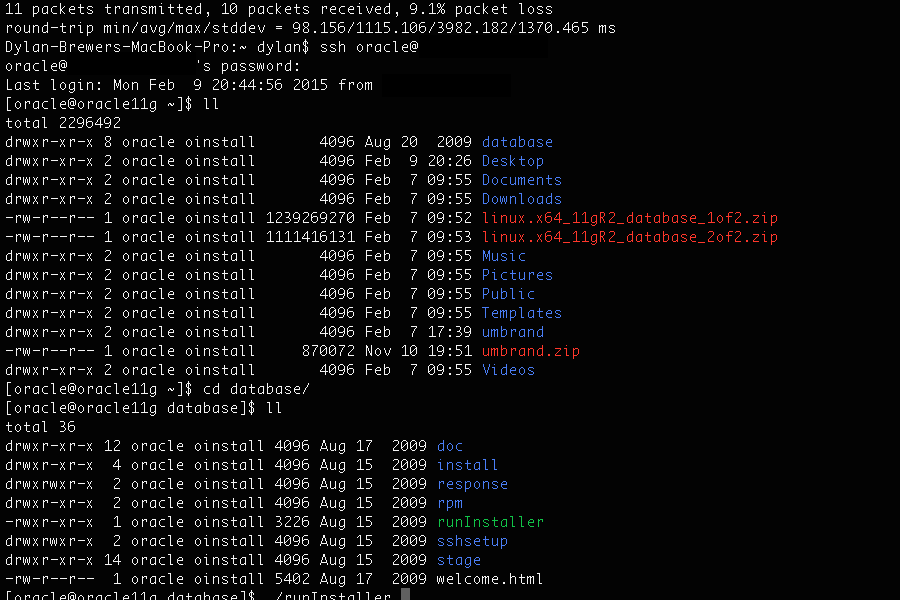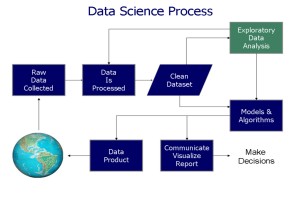Michigan Job Series: Technology is key in transitioning economy
IMAGE / Dylan Brewer
The transitioning economy of Michigan has opened up several tech jobs. Ethical hackers are familiar with remotely viewing a server as pictured.
Part Three of the “Michigan Job Series” focuses on a different type of career path. Marketers, drivers, and welders are necessary positions, but some people want more technological jobs.
With a transitioning economy, technology-based jobs have secured three spots on the list.
Ethical Hacker
With an ever-increasing amount of sensitive data being stored electronically, information security is a field that has gained attention in recent years.
Like every specialized field, hackers have a specific mindset. This means that it takes a hacker to stay one step ahead of another hacker.
Corporations and governments alike are reaching out to these “white-hat hackers” to expose vulnerabilities in their systems and propose solutions.
According to a Chicago Tribune article, even the FBI has recently sought out ethical hackers.
“The FBI seeks highly talented, technically-trained individuals who are motivated by the FBI’s mission to protect our nation and the American people from the rapidly evolving cyber threat,” Mr. Robert Anderson Jr., executive assistant director for the bureau’s criminal, cyber, response and services branch, said in a statement in December.
For the FBI’s “cyber special agent” position, the average salary range is $59,000 to $76,500.
According to the Bureau of Labor Statistics, the median pay for information security analysts is $86,170.
So what is necessary to secure one of these jobs?
A bachelor’s degree in a computer-related field is a typical qualification.
In addition to a degree, some employers look for certifications. Certified Ethical Hacker training is one of the most widely recognized certifications in this field.
As for skills, the BLS said employers look for analytic skills, problem-solving skills, detail-oriented people, and ingenuity.
For students seeking a career in this field, there is one important aspect to keep in mind: technology is constantly changing.
This field requires workers to keep up on the latest technologies, attend training courses, and be life-long learners.
Computer Numerical Control Machine Programmer

A computer numerical control machine is a multi-axis machine used to manufacture parts.
Manufacturing has deep roots in Michigan, especially in Flint. This career brings manufacturing into the 21st century.
CNC programmers are responsible for programming multi-axis machines (like mills and lathes) to manufacture parts.
Though nothing more than a high school diploma is required for this job, not everyone is “cut out” for it.
CNC programmers must analyze the task at hand and translate the manufacturing steps from something humans understand to something a machine understands. They must have strong math skills, computer skills, and the ability to read technical drawings.
Many CNC programmers receive on-the-job training from their employer. Some employers even pay for their programmers to attend classes at community colleges to get trained.
The BLS estimates that the median pay of these workers is $32,950 per year.
User Interface Software Developer
As computer interaction finds a place in many everyday activities, the need for user-friendly application developers is high.
Developers are responsible for analyzing the needs of a client. They design, develop, and test applications to ensure they meet the client’s requests.
It takes a special kind of programmer to be able to craft an intuitive interface for powerful tools, while maintaining all of the original software capabilities.
Senior Dalton Nofs has dual-enrolled in four computer science classes while in high school.

User Interface developers design the software compenents that the end-user interacts with. Windows Phone 8.1 (left), Android 5.0 (right), and Mac OS X (back) all have unique characteristics.
“UI developers have to make everything ‘stupidproof,'” Nofs said. “You have to minimize the opportunities for the user to input bad data, unlike back end developers.”
This field is quite broad, ranging from systems for an employee to interact with his employer’s system, or for a man to order a pizza from an app on his phone.
According to the BLS, the median salary for software developers is $93,350.
UI developers typically hold bachelor’s degrees in computer science, software engineering, and sometimes math. They often begin as programmers and are promoted to developers.
This job is not only one of the fastest growing in Michigan, but one of the fastest growing nationwide.
To view other articles in this series, see the links below:

Class: Senior
Clubs: National Honor Society, Future Problem Solving, Robotics, Mathletics
Athletics: Tennis
Hobbies:Technology, Politics, Religion,...














